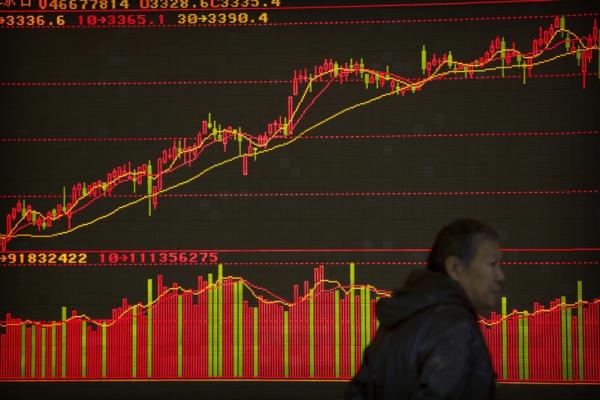Investing.com-- Asian stocks had a marginally positive performance through the first quarter of 2024, benefiting from optimism over a series of record highs on Wall Street and hype over artificial intelligence.
But the positive cues were largely countered by persistent concerns over higher for longer U.S. interest rates, especially as inflation in the country showed little sign of easing.
Still, stock indexes in two Asian countries largely outperformed their peers through the quarter, aided by a mix of easy monetary policy, economic resilience, and outperformance in key technology stocks.
Japan’s Nikkei 225 best Q1 performer in Asia
The Nikkei 225 was by far the best performer in Asia through Q1, extending this trend after outpacing its peers through 2023. The index hit a record high of over 41,000 points earlier in March.
The Nikkei was trading up over 21% for Q1, nearly twice the gains seen in the S&P 500 and the NASDAQ Composite.
Gains in the Nikkei were largely driven by a dovish outlook for the Bank of Japan, which maintained its negative interest rates and yield control policies for most of the quarter.
While the BOJ did eventually raise interest rates for the first time in 17 years earlier in March, comments from BOJ officials suggested that broader monetary policy will still remain largely accommodative for the time being.
Japanese corporate profits also surged through 2023, setting a positive tone for 2024 as major exporters benefited from sustained weakness in the yen. This trend is also expected to continue in the near-term.
Still, some analysts expect the Nikkei to run out of steam, especially if the BOJ decided to tighten policy further in 2024. Citi analysts said they expect the Nikkei to trade rangebound after reaching 41,000 points.
Taiwan stocks boosted by tech as AI hype grows
The Taiwan Weighted index was the second-best Q1 performer in Asia, up about 11%. It also hit a record high earlier in March.
Gains in the index were driven chiefly by Taiwan Semiconductor Manufacturing Corp (TW:2330) (NYSE:TSM), by far the biggest stock on the index.
The world’s largest contract chipmaker was trading up a staggering 30% for Q1, as it shot up to record highs on growing optimism over artificial intelligence.
The firm is the biggest supplier to AI darling NVIDIA Corporation (NASDAQ:NVDA), and has repeatedly signaled that it expects demand for its high-end chips to increase on the back of growing interest in AI development.
AI hype also drove gains in Taiwanese tech heavyweight Foxconn (SS:601138), formally known as Hon Hai Precision Industry Co Ltd (TW:2317). The contract electronics maker clocked an unexpectedly strong earnings performance for Q1, as increased demand for servers from the AI industry helped offset weakening device sales.
Foxconn was trading at record highs, and was up nearly 27% for Q1.
AI-led demand also fueled a 27% surge in South Korean chipmaker SK Hynix Inc (KS:000660). The stock hit record highs in March after it flagged flagged strong demand on the back of AI-driven demand for its cutting-edge high-bandwith memory chips.
But the broader KOSPI index lagged with a 3% gain in Q1.
Broader Asian markets were also set for a muted performance in Q1, albeit with marginal gains on tap for most of the region.
India’s Nifty 50 index was up 2% as it stalled after crossing record high earlier in the quarter.
China’s Shanghai Shenzhen CSI 300 and Shanghai Composite indexes were up 2% and 4%, respectively, as some optimism over more stimulus measures from Beijing helped them rise from five-year lows.
But this optimism did not help Hong Kong’s Hang Seng index, which was set for a nearly 1% loss in Q1.
Australia’s ASX 200 was set for a 3.5% rise, buoyed chiefly by technology and heavyweight bank stocks. But recent losses in mining stocks, on the back of sliding iron ore prices, kept broader gains limited.
